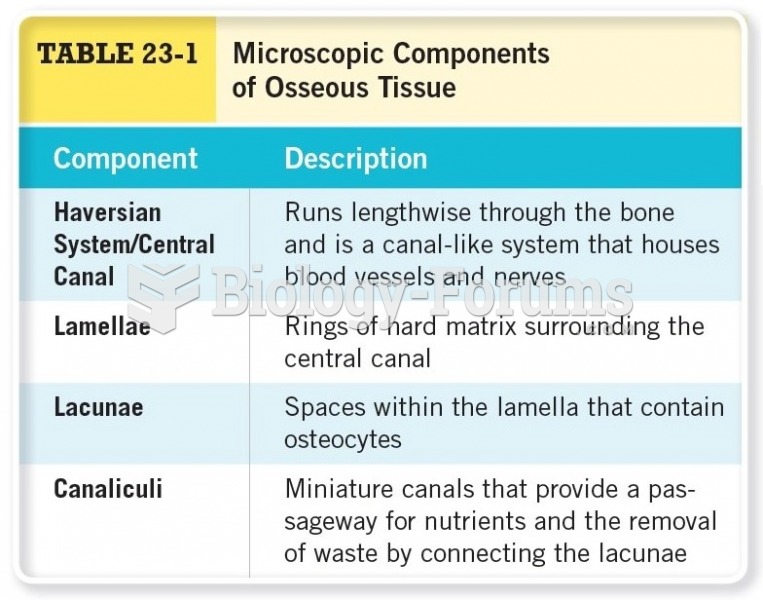|
|
|
Cytomegalovirus affects nearly the same amount of newborns every year as Down syndrome.
The longest a person has survived after a heart transplant is 24 years.
Always store hazardous household chemicals in their original containers out of reach of children. These include bleach, paint, strippers and products containing turpentine, garden chemicals, oven cleaners, fondue fuels, nail polish, and nail polish remover.
The Centers for Disease Control and Prevention has released reports detailing the deaths of infants (younger than 1 year of age) who died after being given cold and cough medications. This underscores the importance of educating parents that children younger than 2 years of age should never be given over-the-counter cold and cough medications without consulting their physicians.
Excessive alcohol use costs the country approximately $235 billion every year.







